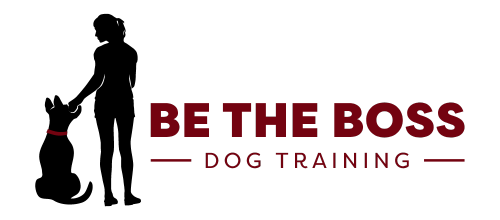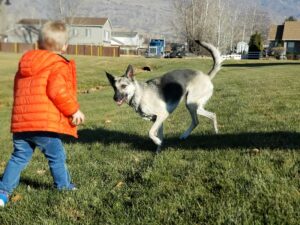I get this question a lot.
Parent buys a dog for the children. The dog is a little anxious and nervous. Dog struggles to escape or avoid the playful children…one child gets too close and the dog lunges, growls or snaps at the child. Enter cue for dog trainer (me).
Is it possible for a dog that is currently displaying nervous/fearful/aggressive behavior around children eventually learn to play with them nicely? Maybe…maybe not.
We need to start from the premise that every dog is a UNIQUE being with a UNIQUE personality. Some dogs are super playful, others like to be quiet by themselves. Some dogs like to play fetch, others like to be chased. Some dogs LOVE to swim, others couldn’t care less for water. Some dogs like to be petted and cuddled, others are okay by just being in the same room as you. You get the point.
As a dog trainer my philosophy is not to change a dog’s personality, it is to help that dog become properly socialized around people, other pets, and environments. By this I mean my goal is simply existence.
Here’s an example of existence:
My german shepherd mix used to run towards any dog she’d see and attack it. Didn’t matter if it was 5 feet away or 50 feet away. I desperately wanted her to be best friends with every dog she saw, and to run around the park with another dog and be happy. I learned that’s not who she is.
Not wanting to force her to be something she’s not…I opted for existence. Now, she no longer runs towards other dogs to attack them. She looks at them, acknowledges that they exist…maybe even sniffs their bum…and then moves on.
She doesn’t need to be best friends with every dog she sees. She doesn’t have that personality. But she certainly needs to learn to exist CALMLY around them.
So…will your dog be able to play nicely with your children? Quite possibly. It all depends on their personality.
However, at the BARE MINIMUM dogs should be polite and calm around the family.
For tips about how to keep your dog polite around the family please email me at bethebossdogtraining@gmail.com
More Tips
Check out our other posts
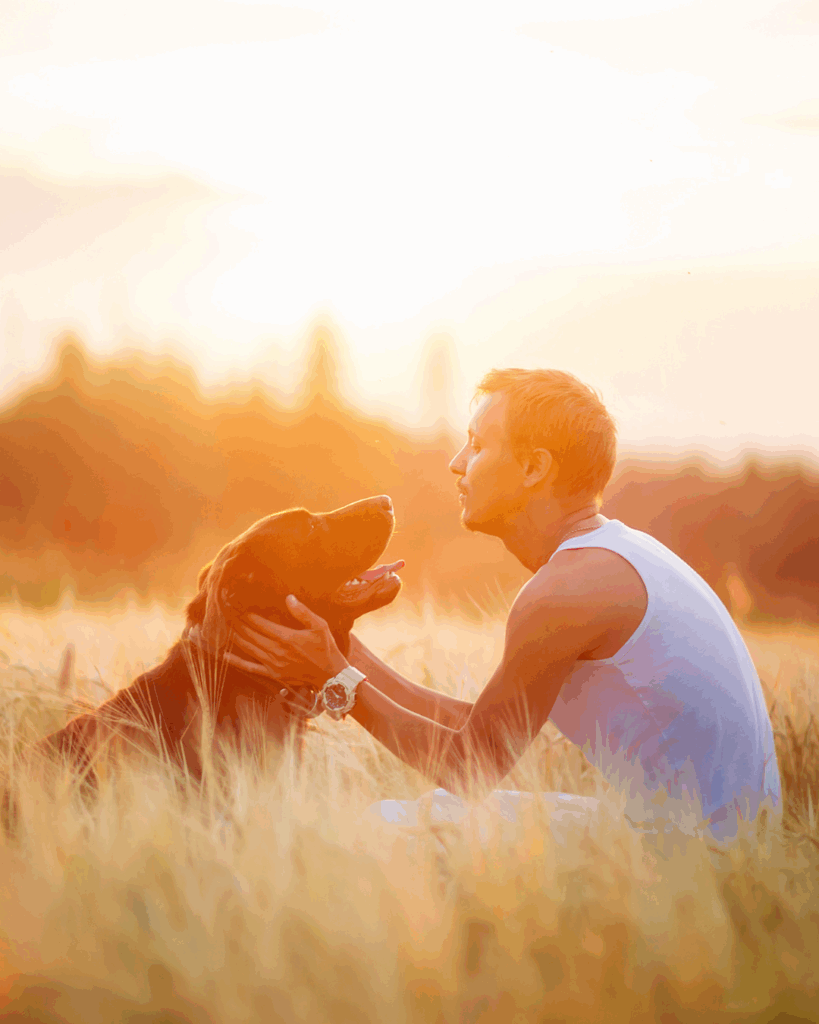
How Long Does It Take to See Progress in Dog Training?
Wondering why your dog’s training feels stuck—or when you’ll finally see real progress?
This blog breaks down the truth behind training timelines and what actually influences how fast your dog learns. From busting the myth of “easy breeds” to showing you what progress really looks like (even if it’s not perfect yet), you’ll get clear, practical insights designed to help you move forward with confidence.
Discover the fastest fixes for frustrating behaviors, why skipping structure always backfires, and how to spot the early signs that your dog is getting it—even if it doesn’t look like obedience just yet.
👉 Tired of guessing how long it’ll take? Click here to read the full blog!
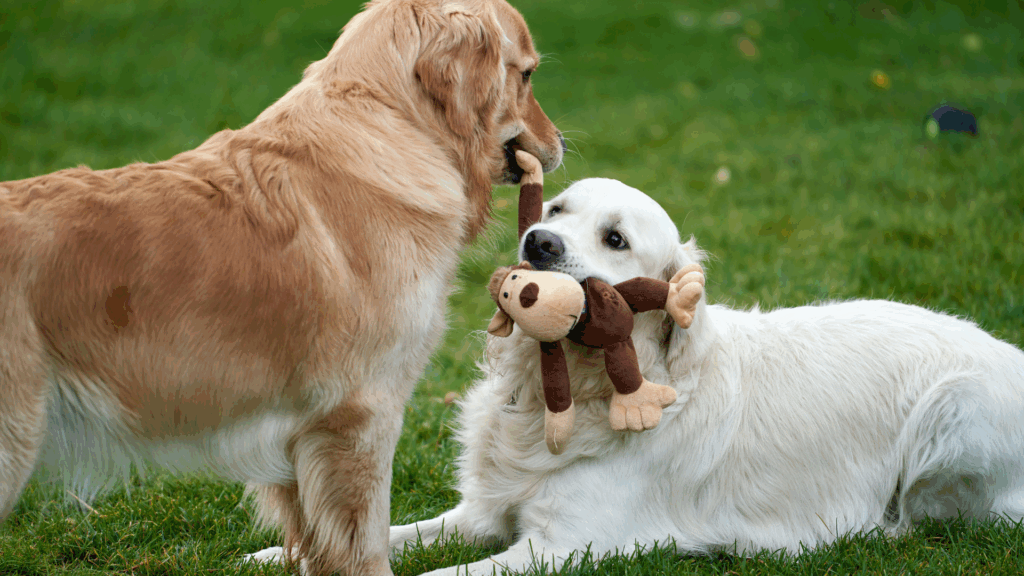
Why Do My Dogs Fight at Home but Get Along Outside?
Tired of peace at the dog park and chaos at home? You’re not crazy—just caught in the middle of some serious pack politics. This blog breaks down why your dogs fight indoors but play nice outside, and what you can do to restore the calm (without giving up your couch). From jealousy to turf wars, you’ll get the clarity and quick wins you’ve been missing.
Are your dogs total angels outside but drama queens at home?
👉 Click here to read the full blog!
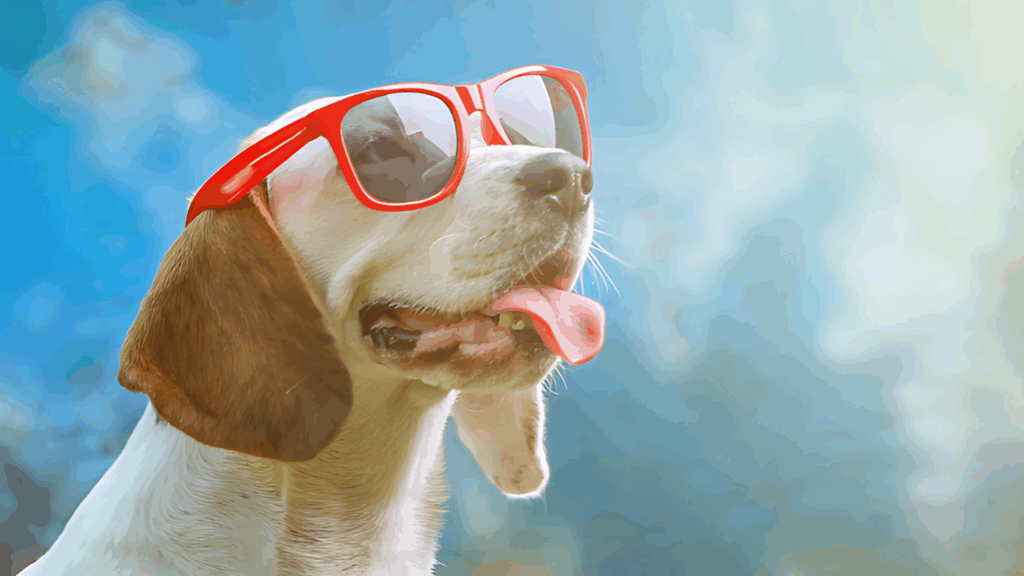
Beat the Heat: How to Keep Your Dog Cool, Calm & Well-Behaved All Summer
Too hot to handle? Don’t sweat it—literally. This summer survival guide shows you how to keep your dog cool, calm, and well-behaved without melting in the heat. From mental games to water play, you’ll get easy, low-effort ways to avoid the “bored and naughty” summer dog syndrome.
Is your dog acting out more now that it’s too hot for regular walks?
👉 Click here to read the full blog!

4 Secrets to Helping Your Reactive Dog Stay Calm Around Triggers
Reactivity isn’t always loud and dramatic—sometimes the biggest breakthroughs happen when nothing happens at all. Calm glances, quiet moments, and subtle check-ins are what retrain your dog’s brain. You don’t need perfection, just consistency and timing. Want to know the 4 secrets that make reactivity training actually work?
👉 Click here to read the full blog!
